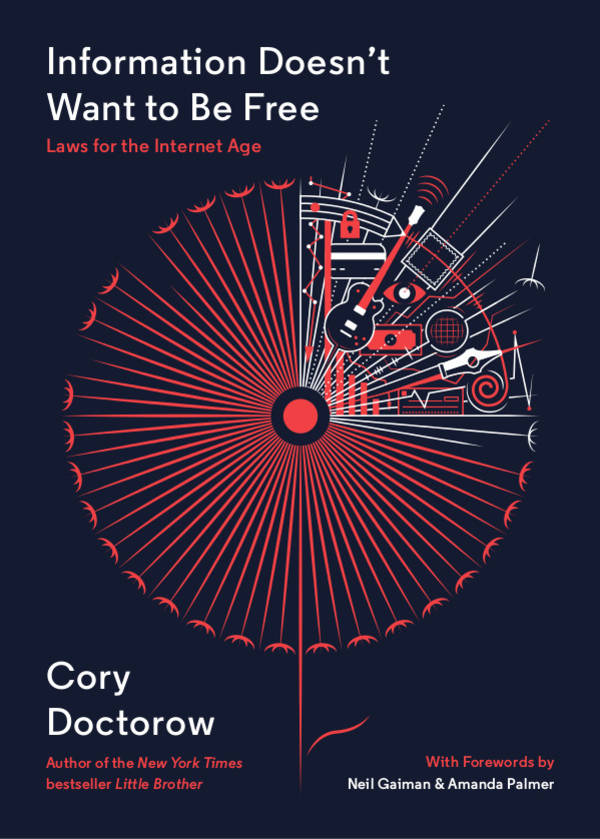
Consumerist’s Kate Cox has turned in a long, excellent, in-depth review of my book Information Doesn’t Want to Be Free, really nailing the book’s thesis. Namely, that extremist copyright laws don’t just mess up artists, but actually endanger all our privacy, freedom and whole digital lives.
Doctorow draws two bright lines connecting copyright law to other major issues: government surveillance, as shared by Edward Snowden; censorship by private companies; and the necessity of free expression to civil and human rights.
Copyright claims are often used as a silencing tactic, where a party with power issues a takedown claim to get content from a party with less power removed from the internet.
For example, Doctorow cites copyright takedown notices issued by police departments demanding to have videos of their officers committing illegal acts taken down on the grounds that the police, not the person with an iPhone who recorded them, have copyright on the videos. Or takedown notices issued by the Church of Scientology to have removed articles from opponents who used leaked internal documents to criticize the organization.
“There are almost never penalties for abusing the takedown process,” Doctorow notes. “It’s the measure of first resort for rich and powerful people and companies who are threatened by online disclosures of corruption and misdeeds.”
Likewise, intermediary companies become gatekeepers of what end users may and may not consume — because they don’t want to get sued. So they fall into the “notice and takedown” scheme, and pass it all along to you. And that includes possibly having your entire broadband connection throttled or hijacked if a copyright holder doesn’t like what a user of that connection has been doing.
Because they have the right, and the ability, to keep an eye on you if you’re anywhere in the ecosystem: using a computer, phone, or internet connection that you didn’t build out of string yourself.
4 Ways Copyright Law Actually Controls Your Whole Digital Life [Kate Cox/Consumerist]
































